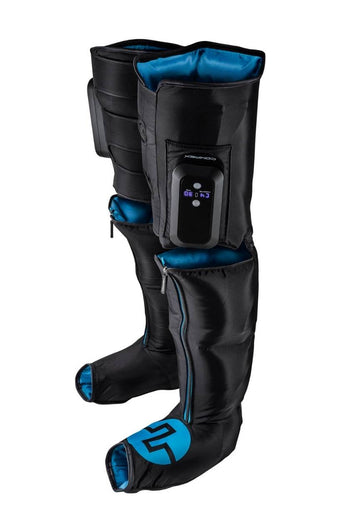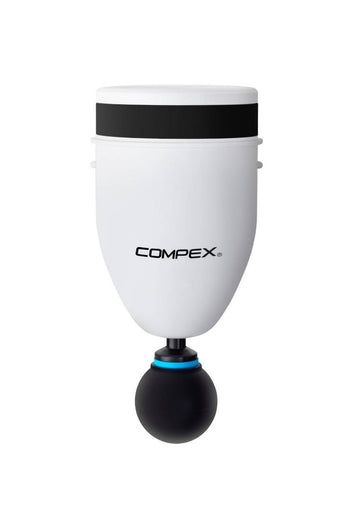While more and more runners are adding their names to the list of famous finishers at Marathons around the world, completing this legendary race is no less of a feat. And performance means preparation! 12 weeks of rehearsals, miles and miles of running, fatigue, stress, volume... Preparing for a Marathon in the right conditions is no mean feat.
Do you want to take the plunge, but are you still a little scared of the sheer volume of training involved? Here are our 5 tips on how to cope with the volume of your Marathon preparation.
#1 - Organising your marathon preparation
Whether you start with 10 or 12 weeks of preparation, you're embarking on an adventure that will take you almost 3 months of training, with 3 running sessions a week. And that's no mean feat!
To ensure that these weeks pass as smoothly (as possible) as possible, without you feeling like you're being run over every time you go out, you're going to have to take care of your organisation.
Choose a training plan that's adapted to your objective, with a good distribution of sessions. Don't find yourself running Monday - Tuesday - Wednesday, then nothing until the following week. Choose one or two recovery days between each training session (Tuesday - Thursday - Sunday, for example).
If preparing for a Marathon obviously means that you're going to have to run, you can give your joints a bit of a rest by replacing one of your sessions with a bike ride, for example. You keep a prolonged stimulus on your lower limbs and reduce the effects of repeated impact that you see during your running sessions.
#2 - Paying attention to the ‘extras
For the vast majority of us, preparing for a Marathon doesn't mean that life on the side stops. You'll still have to go to work, look after your children, spend time with your partner, maintain your social and professional life obligations etc...
All of this means that your sleep, level of stress and fatigue will have an impact on your sessions. You need to take this into account. This is your chance to show your unfailing flexibility! Business dinner on Tuesday, the day of your first outing of the week? Arrange to train the day before or between lunchtime and midday. Difficult night because baby isn't sleeping through the night? Slow down a little on your long outing or change the day. The important thing here is to listen to your body so that you don't over-train or train when you're very tired. We want to avoid injury!
Seasonality can also play tricks on you. If you're preparing for the Paris Marathon in April for example, you're going to have to complete a large part of your preparation during the cold days of January and February, with very low temperatures and an early sunset. Take all that into account.
#3 - Eating well and staying hydrated, the key to success
Marathon runners need a diet that is adapted to their effort. If you regularly run in the cold to prepare for your marathon, you're going to have to provide your muscles with the calories and nutrients they need to recover properly, but also to perform well. This preparation may also be an opportunity to take a break from junk food and alcohol, two adversaries of performance. Make sure your body has an adequate intake of carbohydrates and proteins, while focusing on good quality food. And if all that sounds like a lot of mumbo-jumbo to you, don't hesitate to get help from a sports nutrition specialist.
In any case, above all you need to make sure you're hydrated (at least 2 litres of water a day).
Although we're talking about off-race nutrition here, you mustn't skimp on your intake during exercise either. The volume of your preparation takes place outside your sessions, but also during them, when you mustn't let your body be overwhelmed by the effort involved. Support it with gels, bars, fruit or other foods, particularly during your long runs. Don't hesitate to try out several to find the combination that best suits you.
#4 - Optimise recovery as much as possible
Marathon preparation involves 10 to 12 weeks of training with a substantial volume of running, especially if you're not used to it. After a few weeks, fatigue can start to set in with repetitive training. The most dangerous thing here is to ignore it, and risk injury (nothing worse for your morale and progress).
So, if you want to successfully complete your preparation, you need to prioritise your recovery. This starts with everything we've discussed above: diet, sleep, hydration, stress management, etc.
If you want to prepare further, you can use Compex recovery tools. The range includes muscle stimulators to help you recover from your sessions using electrostimulation, as well as massage guns for a more direct effect, pressotherapy boots for lighter legs, and recovery socks to prolong the benefits of your sessions.

#5 - Don't overdo it
Third week and you're thinking it's too easy? Calm down!
The best way to get caught out by your preparation is to underestimate its length and volume by trying to skip stages from the start.
Preparation is key to help you build up your power. The target is the end of week 12, not the start of week 3. You're going to have to be patient and stick to the plan that's been put in place, and not try to do too much too quickly.
If you're still in the first 5 weeks and the training really seems to be a notch below your objectives, you can move on to a more ambitious programme. Mind you, this doesn't mean more weekly sessions, just a higher volume. If you've passed the 5-week mark, simply increase your pace by 2 to 5 seconds per km gradually on long runs. You may even gain a few minutes on the big day.
With these 5 tips, you should be able to cope with the volume of training involved in your marathon preparation. Don't forget to set yourself an achievable goal if you want to go all the way in your marathon.





